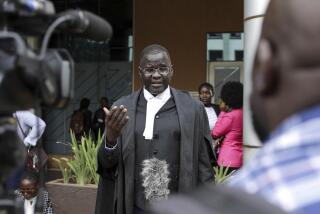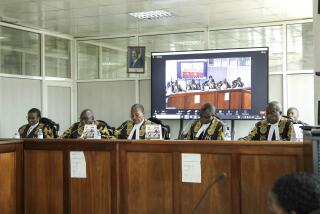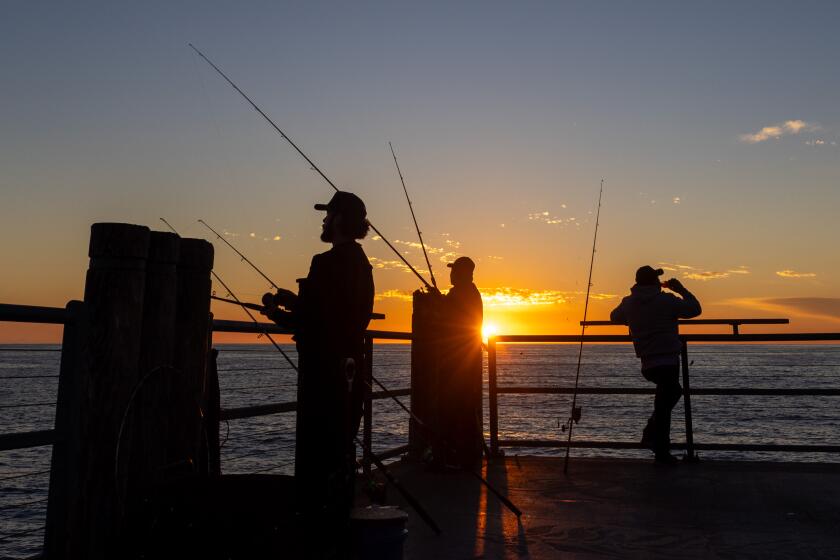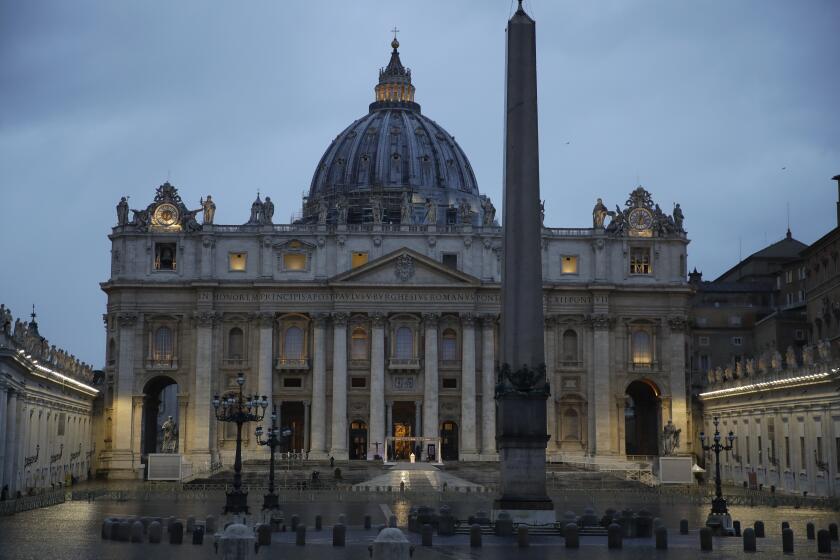Government calls ruling against ‘don’t ask, don’t tell’ moot
Government lawyers urged an appeals court Thursday to strike down a ruling last year that the law banning gays from serving in the military violated the service members’ constitutional rights.
The “don’t ask, don’t tell” policy will be repealed Sept. 20, rendering the ruling by U.S. District Judge Virginia A. Phillips “moot,” Justice Department lawyer Henry Whitaker argued before a panel of the U.S. 9th Circuit Court of Appeals.
But the Log Cabin Republicans, gay rights advocates who sued over the 18-year-old policy, urged the judges to uphold Phillips’ ruling, arguing that courts will need to rely on that precedent in handling lawsuits expected from those illegally discharged.
“This case took seven years to get here today. It would be inappropriate to have people go through all that again,” Dan Woods, the attorney representing the Log Cabin Republicans, said of the gay service members whose suit against the policy led to Phillips’ landmark ruling a year ago.
A 9th Circuit panel suspended Phillips’ ruling in October while the government’s appeal was pending but modified that stay in July to prohibit the Pentagon from further discharges and from opening new investigations into allegations of homosexuality raised against active service members. More than 13,000 soldiers and sailors were dismissed since the law was enacted in 1993.
Congress voted to rescind “don’t ask, don’t tell” in December but gave the military unspecified time to work out how it would integrate gays and to retrain service members about the new policy. The Pentagon announced on July 22 that it is prepared to make the change, triggering a 60-day countdown to the end of the ban.
The Obama administration, in the meantime, has pressed on with its appeal of Phillips’ ruling.
“This lawsuit has always been about ending ‘don’t ask, don’t tell.’ Once ‘don’t ask, don’t tell’ ends, in 19 days, this lawsuit is over,” Whitaker said, asking the court to vacate Phillips’ ruling and dismiss the Log Cabin Republicans’ suit.
Judge Diarmuid F. O’Scannlain asked Whitaker whether the government still defends “don’t ask, don’t tell” as a constitutional statute.
“As the law now exists,” Whitaker said.
Judge Barry G. Silverman asked whether it might be in the public interest to dismiss the case now that an end to “don’t ask, don’t tell” is imminent, observing that prolonging the litigation beyond the life of the statute might be perceived as “judicial activism.”
Whitaker agreed, but Woods countered that to erase the legal holding that the ban on gay service is unconstitutionally discriminatory would burden the courts with lengthy trials to re-establish that the policy was illegal as they deal with lawsuits expected to be brought by discharged service members seeking reinstatement, lost pay or other redress.
Woods also cited what he said was a risk of another bill being passed by Congress aimed keeping gays out of the armed services.
“If this case doesn’t go forward on the merits, the government will be completely unrestrained from again banning gays from the military,” Woods told the judges.
The three-judge panel gave no indication of when or how it would rule, and most 9th Circuit panels take weeks or months to issue decisions.
More to Read
Start your day right
Sign up for Essential California for news, features and recommendations from the L.A. Times and beyond in your inbox six days a week.
You may occasionally receive promotional content from the Los Angeles Times.







